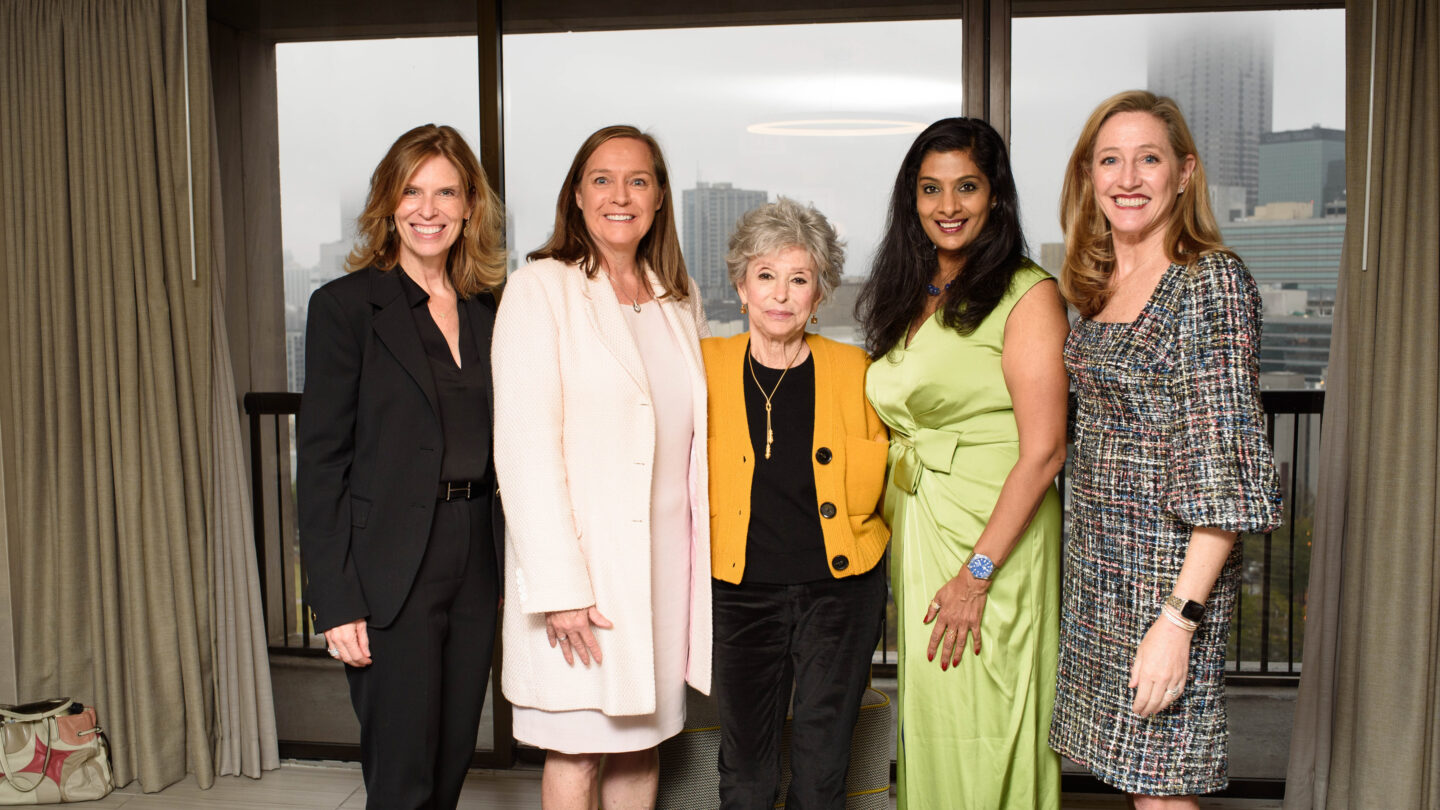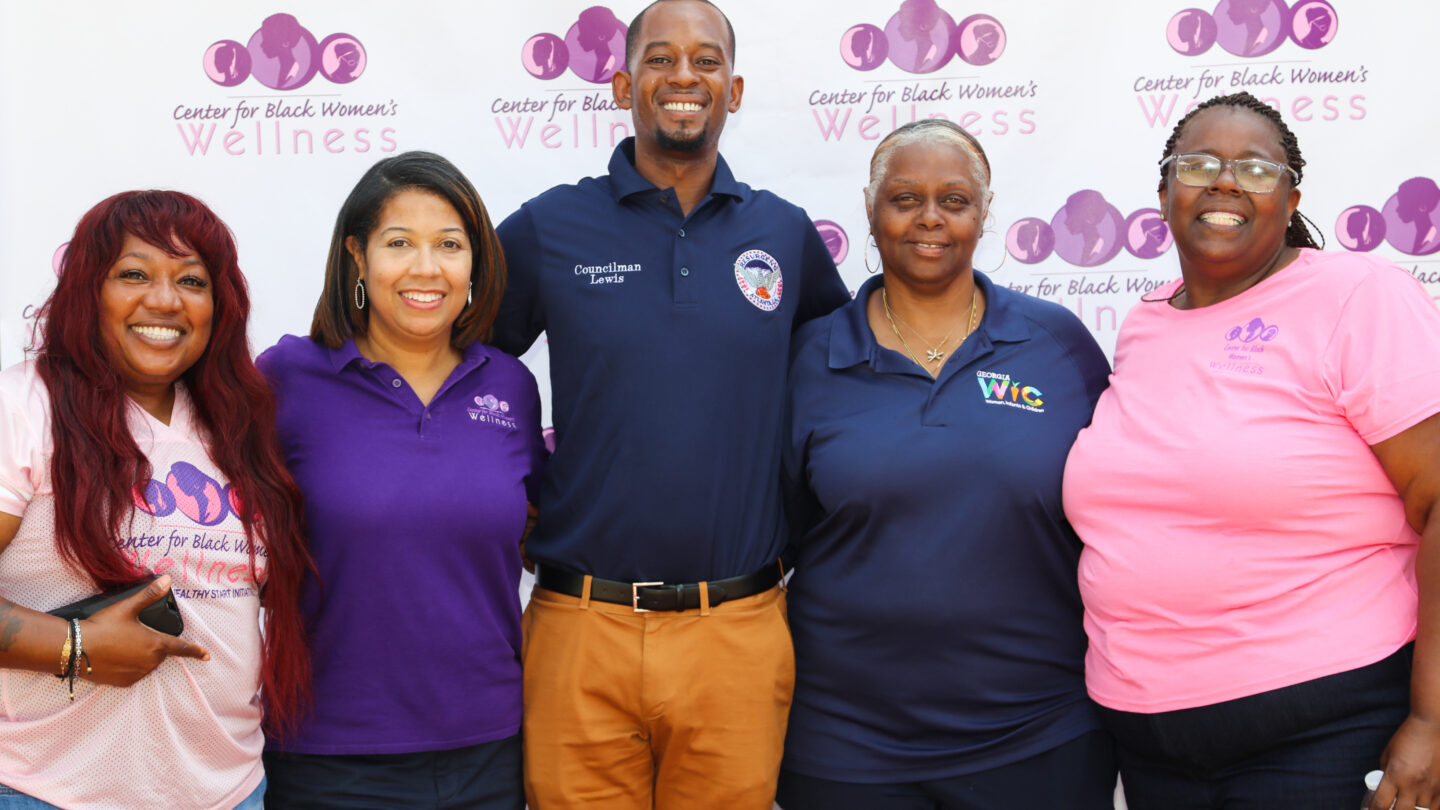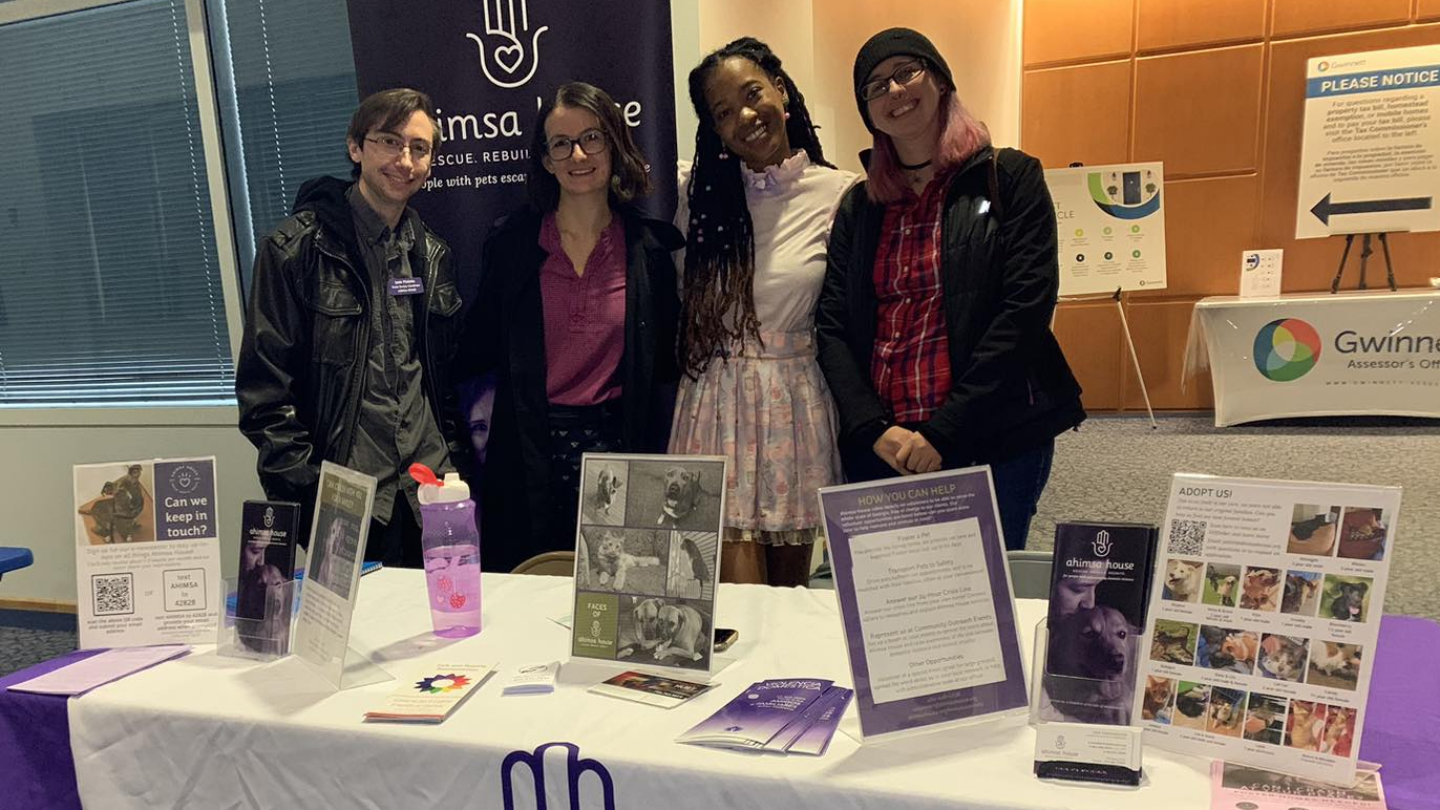Atlanta foundation and nonprofits lead initiative for post-COVID wellness for women – WABE

[ad_1]
When Meredith Leapley arrived at last year’s Numbers Too Big To Ignore Luncheon, an annual banquet held by the Atlanta Women’s Foundation (AWF), she was overjoyed to see not only a high number in attendance but also donations. The highest number of donations in the foundation’s history, raising over $1.2 million, noted Leapley in a recent Zoom conversation.
In a time when most businesses and organizations are still recovering from financial hits from the COVID-19 pandemic, AWF has continued to rise in funding and familiarity throughout the city.
“I think that Atlanta Women’s Foundation is uniquely positioned in that we are seeing more interest and funding from that period of time,” said Leapley. “People are much more aware and have slowed down.”
As the board chair of the foundation, Leapley works alongside CEO Kari Love to ensure charitable contributions are consistent and that the women supported by AWF are able to thrive without any obstacles or intrusions.

AWF Board Chair Meredith Leapley, Joanna Price, actress Rita Moreno, Dr. Sujatha Reddy and AWF CEO Kari Love (from left to right) at the 26th Atlanta Women’s Foundation Numbers Too Big to Ignore Luncheon in 2022. (Courtesy of Kari Love)
The foundation, the only one of its kind in the state, was first established in 1986 and is dedicated to providing funding, resources and evaluation support to nonprofits that provide initiatives to low-income women and girls.
“When we actually empower women, it changes communities. When we start with girls and the systematic issues that face girls, we change their ability to succeed to their potential and [accomplish] what their dreams are,” said Leapley, who has served in the position since 2021.
“We give to so many important nonprofits that are making an impact and align with our mission, which is truly to break down any barriers or challenges for women and girls, and to end the poverty cycle. To be a catalyst for change.”
Leapley, who highlighted the foundation’s concentration on mental health in upcoming years, is also proud of AWF’s commitment to providing opportunities to uplift diversity in the nonprofits that they support.
“Inclusivity, if you aren’t looking at that within your business or your community, you’re already left behind,” she said. “It’s extremely important to help find those partners … to give them a seat at the table to be heard, seen and believed.”
One of these organizations includes The Center for Black Women’s Wellness, a nonprofit that assists women of color in metro Atlanta with healthcare resources.
The primary initiative in recent years has been advocating for Black women in terms of maternal health, cancer awareness, and a variety of other health-related causes.
“Currently, in the United States, all philanthropic giving to all the organizations that specifically impact girls and women, only 1.6% of the profits are directly going to girls and women.”
Meredith Leapley, Board of Directors Chair – Atlanta Women’s Foundation
CEO Jemea Dorsey notes that the nonprofit has grown exponentially in employee and volunteer size, as well as the number of programs offered since her start with the organization in 1996. The healthcare advocate estimates that the center assists roughly over 3,000 women annually.
While the organization has received recent national recognition for its work, primarily during the 2020 protests over the death of Breonna Taylor, Dorsey says that the rise in awareness of the struggles that Black women often face in the U.S. is only one step in helping to solve issues related to systematic inequalities in healthcare.
She also stated that the COVID-19 lockdown shined a light on the difficulties that many female and Black-led organizations face on a daily basis.
“There has been more understanding now that Black-led organizations have not always received the help that they need… that a lot of Black-based organizations are underfunded,” said Dorsey. That we do so much programmatically, but yet we often don’t get the general operating support needed. I think historically, we tend to do a lot with a little. And that’s typically what Black women do anyway.”
Dorsey says that regardless of health, income, insurance status and education, outcomes related to Black maternal health are still worse compared to white counterparts.

The Center of Black Women’s Wellness CEO Jemea Dorsey (second to left) poses with colleagues the organization’s Ultimate Baby Shower, one of many events held to help spread awareness of maternal health and it disparities in the African American community compared to other racial counterparts. (Courtesy of Qu West Photography)
“I think that the reality is, there have been systems that have been designed to create these inequities. There is definitely more knowledge of the issues, but… there needs to be this will that we all have collectively as a society so that we change these systems and have more equitable care. Why is it ok that people go without health insurance? Why should we feel that we should just receive any type of treatment from a provider?” said Dorsey.
“As much as we can make a difference with the interventions and the programs that we do, there needs to be a true commitment from everyone, and it’s not just health care, it’s a multi-sector approach needed to make things better.”
Myra Rasnick, executive director of the Tucker-based nonprofit Ahimsa House, knows firsthand the importance of community in creating substantial change, particularly in providing emotional and mental support to victims of domestic abuse.
Founded in 2004 by a survivor of domestic abuse, Ahimsa specializes in providing alternative care for the pets of abuse survivors who are temporarily unable to house their companions after escaping their previous living spaces.
The organization has a 24-hour crisis line, safety planning, veterinary care and foster housing for pets, and transportation resources for victims and their pets to leave the home safely.
“[Pets] can be their only source of unconditional love … the one true loving relationship that they have.”
Myra Rasnick, Executive Director – Ahimsa House
According to Rasnick, studies show that abusers use pets as a way to control their victims, with 71% of victims claiming that their abuser harmed or killed their family pet as an act of intimidation. The director considers their services as a way to help the victim remove obstacles that they face upon making the decision to leave their relationships.
“We know that it’s a hurdle for people to leave. Sometimes it’s financial barriers … there are cultural barriers; not to mention people who have experienced past trauma or childhood abuse, they have their own set of barriers that they’re dealing with,” she said. “It’s not just a simple, ‘why don’t they just leave?’ It’s not that simple.”

Staff members pose at a table showcasing Ahimsa’s House. The nonprofit, founded in 2004 by a domestic abuse survivor, has dedicated its mission to providing the pets of abuse victims safe temporary housing/ foster care while their owners are rebuilding their lives after leaving the confines of abusive homes. (Courtesy of Myra Rasnick)
Rasnick notes that in many abusive relationships where the victim feels isolated and stripped of confidence, pets often serve as their only source of support.
Especially during the period of lockdown, the pets of most victims have grown to become their closest confidants.
“It can be their only source of unconditional love … the one true loving relationship that they have. I see that with not only adult survivors but also childhood survivors who have been in abusive homes,” said Rasnick. “It’s all about keeping people and their pets together, keeping families together.”
While Leapley states that the awareness and support of women-based organizations things have improved since her beginnings with the AWF nearly twenty-five years ago, both Georgia and the U.S. still have a long way to go.
“Currently, in the United States, all philanthropic giving to all the organizations that specifically impact girls and women, only 1.6% of the profits are directly going to girls and women,” said Leapley. “The more we get the Atlanta Women’s Foundation mission, results, our data out there, the more people that are coming towards us to partner.”
“These issues have always been here. Now the world is paying much more attention. That’s the positive part. In the hard-to-digest area, most of the women and girls who were already in a poverty circle were deeply devastated by COVID than ever before. There was such a hardship…I don’t know what would have happened if we weren’t able to raise the money to help support them.”
[ad_2]
Source link
